
 M. Rigmaiden said...
M. Rigmaiden said... Well Sub, you, me and HW seem to agree on the reason why the movie is tantamount to 'poverty porn'. I understand that peoples' stories need to be told but there is so much imbalance in the depiction of us, as you aptly noted. Nobody in my immediate family will see that movie nor seems to have a desire to do so. I DID watch some clips from it and the acting was phenomenal. Then again the acting in Oedepus Rex was also phenomenal but it certainly isn't something I'd rush to see in the theatre or anything!
Well Sub, you, me and HW seem to agree on the reason why the movie is tantamount to 'poverty porn'. I understand that peoples' stories need to be told but there is so much imbalance in the depiction of us, as you aptly noted. Nobody in my immediate family will see that movie nor seems to have a desire to do so. I DID watch some clips from it and the acting was phenomenal. Then again the acting in Oedepus Rex was also phenomenal but it certainly isn't something I'd rush to see in the theatre or anything!Sasha said...
 Sigh...People will never be satisfied. Someone will always find something to bitch about. Make a movie where all the characters are professionals and someone cries, "Why are they so bougie? That isn't realistic. Black people don't do ____." Make a movie about life in the hood and someone cries, "Why are we always portrayed negatively? Not all black people live in the ghetto/beat their kids/sell drugs ____." Blah fucking blah.... Isn't the beautiful thing about being black that we are ALL of those things? The good, the bad, the in between? Do white people get up in arms when there are white trash characters? Do white people watch a film and concern themselves with how WE are viewing them?
Sigh...People will never be satisfied. Someone will always find something to bitch about. Make a movie where all the characters are professionals and someone cries, "Why are they so bougie? That isn't realistic. Black people don't do ____." Make a movie about life in the hood and someone cries, "Why are we always portrayed negatively? Not all black people live in the ghetto/beat their kids/sell drugs ____." Blah fucking blah.... Isn't the beautiful thing about being black that we are ALL of those things? The good, the bad, the in between? Do white people get up in arms when there are white trash characters? Do white people watch a film and concern themselves with how WE are viewing them?













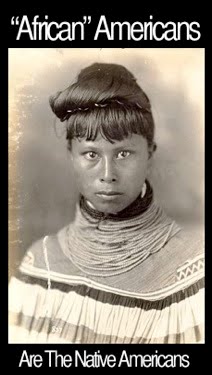




























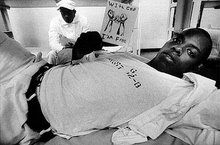
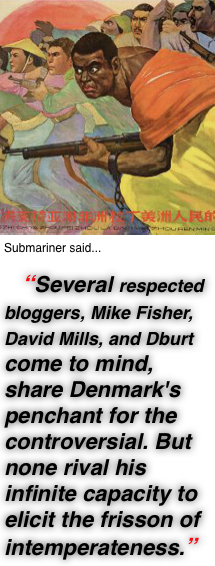


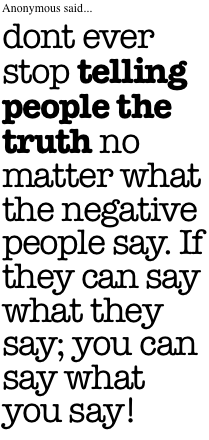

















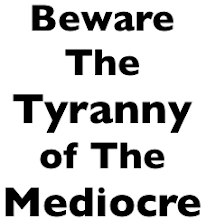





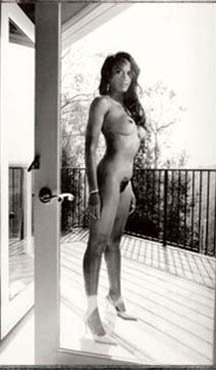







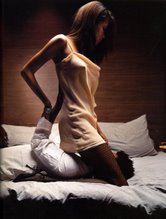




























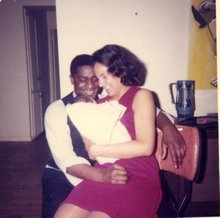




15 comments:
I haven't seen the movie and I don't intend to because the subject matter doesn't appeal to me. I do think that if it's responsibly done (not like Tyler Perry whose portrayals of abuse are disgusting and unrealistic to me) it is a story that should be told. Sexual abuse is something that needs to be dealt with because a lot of black people seem to think that white people have the cornerstone on sexual abuse of children. There are white books (once again, I haven't seen the movies) that deal with the subject matter like Bastard Out of Carolina and White Oleander but somehow we are in denial about it, I guess similar to our past denial of black homosexuals. I do agree that the portrayals of us is imbalanced but I don't think that pretending that our lives are all rainbows and butterflies is a good solution.
the movie is a piece of art AND a product. the marketplace decides. and it's a very profitable film, but not a blockbuster. it worked because it was a well made film on a shocking subject made inexpensively.
but the number of black people who take a very aggressive stand about not seeing it is striking. completely understandable, though.
Yeah Dude. In truth, the subject matter is too much for my sensibilities. I think of such depictions of violence as soul murder. I cannot watch that kind of stuff AT ALL. Hell I still haven't gotten through the first ten minutes of clockwork orange.
Pink I identify with what you are saying; we have to achieve some type of balance where we aren't all depicted as depraved sickos or perfect people.
Sigh...People will never be satisfied. Someone will always find something to bitch about. Make a movie where all the characters are professionals and someone cries, "Why are they so bougie? That isn't realistic. Black people don't do ____." Make a movie about life in the hood and someone cries, "Why are we always portrayed negatively? Not all black people live in the ghetto/beat their kids/sell drugs ____." Blah fucking blah.... Isn't the beautiful thing about being black that we are ALL of those things? The good, the bad, the in between? Do white people get up in arms when there are white trash characters? Do white people watch a film and concern themselves with how WE are viewing them?
Sasha, I agree. Black people cannot just watch a movie/show for what it is.
Mahndisa I saw Clockwork Orange in high school and it gave me nightmares! I can usually watch violence but that just creeped me out! I can't do abuse against children though because it makes me too angry to be entertained.
I'm with Sasha. I saw the movie. I thought it was good, not great.
Sasha,
It's not so much about what is being depicted but how it is depicted and who is doing the depicting, with what intent and for which audience. I watched Precious and at times I was drawn into the characters of Precious and her mother, but other times watching them felt like a continuous psychological assault on my personhood because of how the story was told and by whom it was told.
White people don't neccessarily worry about majority Black reactions because of the social political and economic advantages Whiteness has; who runs the academy and film industry? Whiteness has been constructing itself and others for centuries that to stop and think more truthfully about what 13% of the nation thinks is when we can honestly and seriously speak of a post-racial society. But even beta is what Black folks can do for themselves is move beyond race; stop worrying about Whiteness and validating their identity on those antiquated terms.
In Precious; power, education and freedom are modelled along Whiteness. Paula Patton (and her roommate/lesbo lover), Mariah Carey and Lenny Kravitz are all light-skinned, of slim-build and their characters are educated and relatively successful in their lives are contrasted with the fat, dark Precious and her fat, evil Momma - even the Grandma who is a sensible figure, hardly speaks and plays the stereotypical fat, strong, silent Black Woman.
iCan't look over the glaringly obvious power differentials, modelled along body size and skin colour. For as much as I may have liked some of the characters in the school, laughed at some points and felt for Precious, iCant overlook how badly this story was told.
But "A Clockwork Orange" was a statement against a flawed establishment - while many of the current discussions surrounding "Precious" seem to celebrate a flawed establishment.
i invite u all to read the book.
the perspective of how the title character viewed her life is what this book is about....not how others' viewed it.
black people are whiners, but the heart of the complaint is legit - black folks want their full humanity represented. it's not about a profession or a economic class, but a desire to be more than symbolic stand ins.
At least, that's how I feel. Folks who hated the COSBY SHOW because they were winning - I got no use for them. Folks who hear the genius in the lyrics of MINDS PLAYING TRICKS ON ME or ROC BOYS - I got no use for them.
30 years later, people care more about DOLOMITE than SOUNDER. Thirty years from now, people will care more about MENACE TO SOCIETY than PRECIOUS.
Sasha & TGN are on point. The illusion of a so called "collective image" is a product of insecurity through dependence and brainwashing. Believing the illusion breeds weak minds.
KP
TGN
I'd like to read the book, the book is usually better than the film for me.
KP
iGet what you're saying and agree with putting to death the race paradigm , but how do you interpret aspects of a film that explicitly plays on those old stereotypes? What might a post-Black interpretation be?
KW - I think its best to see the film as simple product of environment. The key is to resist thinking what you're seeing is a "black", "ghetto" or "inner city" environment. Portions of the film clearly required ethnic insights but I truly see precious as an american story. The black cast forced many to see it through a black lens. If they did, I believe they completely missed the point. A white cast, with a few different vices would have achieved far more impact. There are more white Precious' walking around than black ones. There are some rail thin white precious' with keys to 2010 benzes in LV bags shopping on melrose right now. The story is about self image due to a number of experiences, circumstances, influences, pop culture, perceived success etc.
Question is: would HARPO and Madea support it with the same fervor if Lee Daniels demanded a white cast and would hollywood green light it?
KP
LOL, co-sign abt the Melrose Place Precious's - Ishmael Reed makes that same point but in a different way. I def don't think that Precious's story applies only to the Black inner-city kids - I don't see stories or identities as fixed and singular, but as pluralistic, transitional and inter-connected. What bothers me is when that fixity continues and identities are constructed using the same tools in a way that doesn't adequately deconstruct the structures that created fixed identity in the first place (i.e Paula Patton & Lenny K v Precious & Mo'nique.)
I didn't have that expectation of the film, but I couldn't ignore what was placed in front of me. Maybe I need to think about how a post-Black / American post-identity can re-interpret the issues I had with the film.
Post a Comment